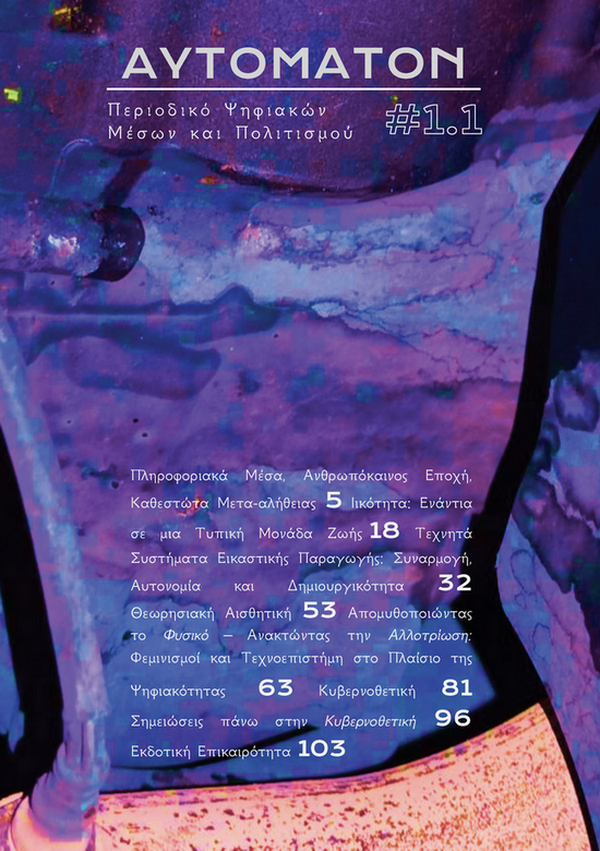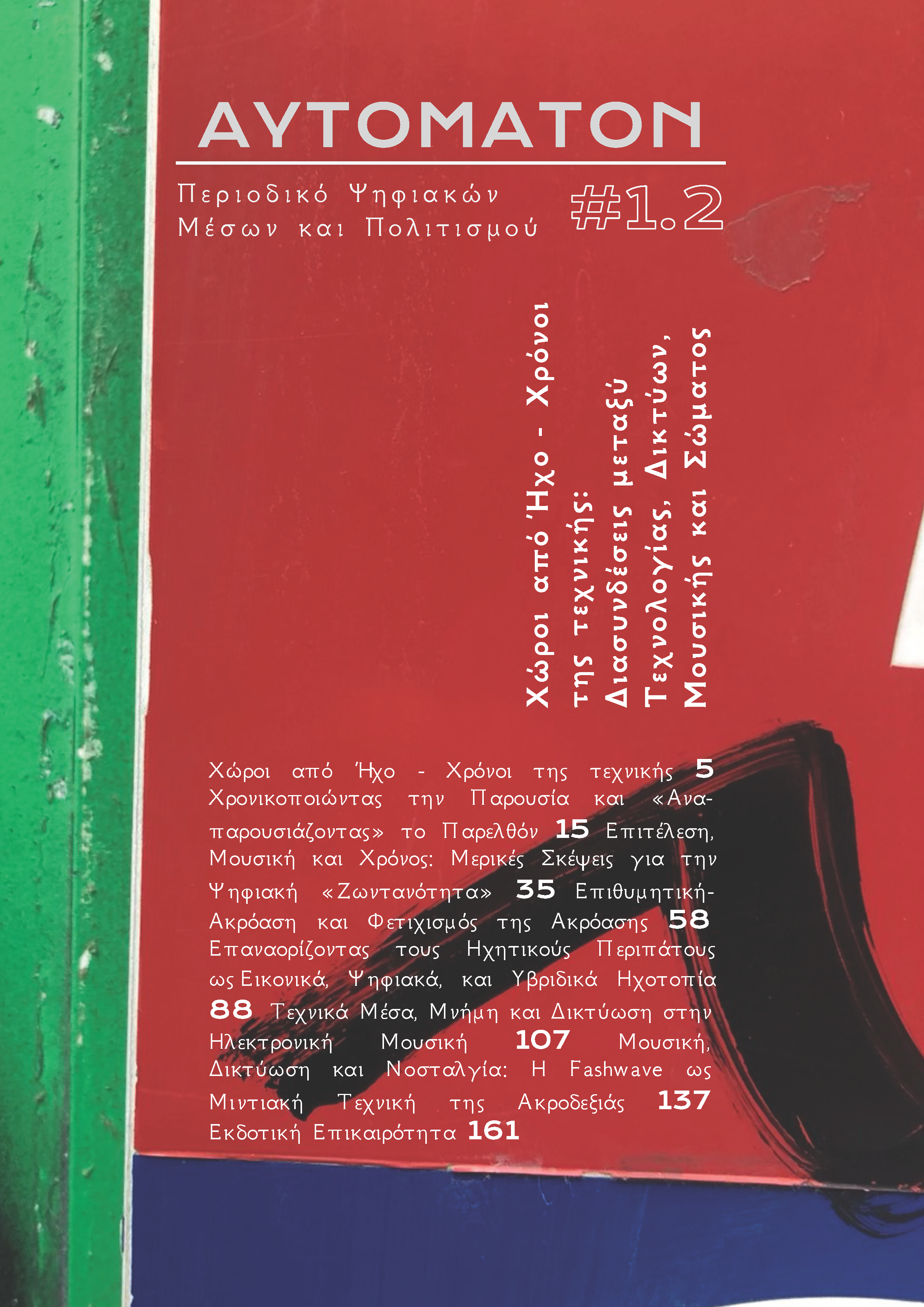Πληροφοριακά Μέσα, Ανθρωπόκαινος Εποχή, Καθεστώτα Μετα-αλήθειας
Abstract
Ποιος είναι ο αντίκτυπος της (ανα-)μεσοποίησης του φυσικού και κοινωνικού κόσμου από τα πληροφοριακά συστήματα; Πως διερευνούμε τον ρόλο των βιο-πληροφοριακών και τεχνο-κοινωνικών μέσων στην εργασία, στη πολιτική, στις κοινωνικές σχέσεις, στη συγκρότηση του σώματος, στην άρθρωση της υποκειμενικότητας, στη γνώση, και στις πλανητικής κλίμακας μετατοπίσεις στο περιβάλλον και τη διακυβέρνηση;
Το παρόν κείμενο - αντι εισαγωγικού σημειώματος - φιλοδοξεί να θέσει κάποιες βάσεις που θα σκιαγραφούν ένα θεωρητικό και επιστημολογικό πεδίο για τη διεπιστημονική προσέγγιση των πολιτισμικών μετασχηματισμών του 21ου αιώνα. Το κείμενο επιχειρεί να χαρτογραφήσει το αντικείμενο του περιοδικού όπως αυτό σημαδεύεται από τους πολιτικούς μας χρόνους, και από την ανάδυση νέων (έμβιων και μη) τεχνο-κοινωνικών μορφών ζωής και των τεχνικών διακυβέρνησής τους.
Article Details
- How to Cite
-
Κυριακόπουλος Λ., & Πετρίδης Π. (2021). Πληροφοριακά Μέσα, Ανθρωπόκαινος Εποχή, Καθεστώτα Μετα-αλήθειας. Αutomaton: Journal of Digital Media and Culture, 1(1), 5–17. https://doi.org/10.12681/automaton.28563
- Issue
- Vol. 1 No. 1 (2021)
- Section
- Articles

This work is licensed under a Creative Commons Attribution 4.0 International License.
Authors wishing to publish articles in this journal agree to the following terms:
1. The Authors retain the Copyright and grant the journal the right of first publication while at the same time the copyright of the work is protected under the Creative Commons Attribution License which allows third party licensees to use the work as they wish provided they acknowledge the work's authorship and initial publication in this journal.
2. Authors may enter into separate additional contractual arrangements for the non-exclusive distribution of the published journal version of the work (for example, posting it to an institutional repository or publishing it in a book), with acknowledgment of its initial publication in this journal.
3. Authors are allowed and encouraged to post their work online before and during the submission process (e.g. on their website) as this can lead to productive exchanges as well as earlier and more citations of published work (See The Effect of Open Access).




